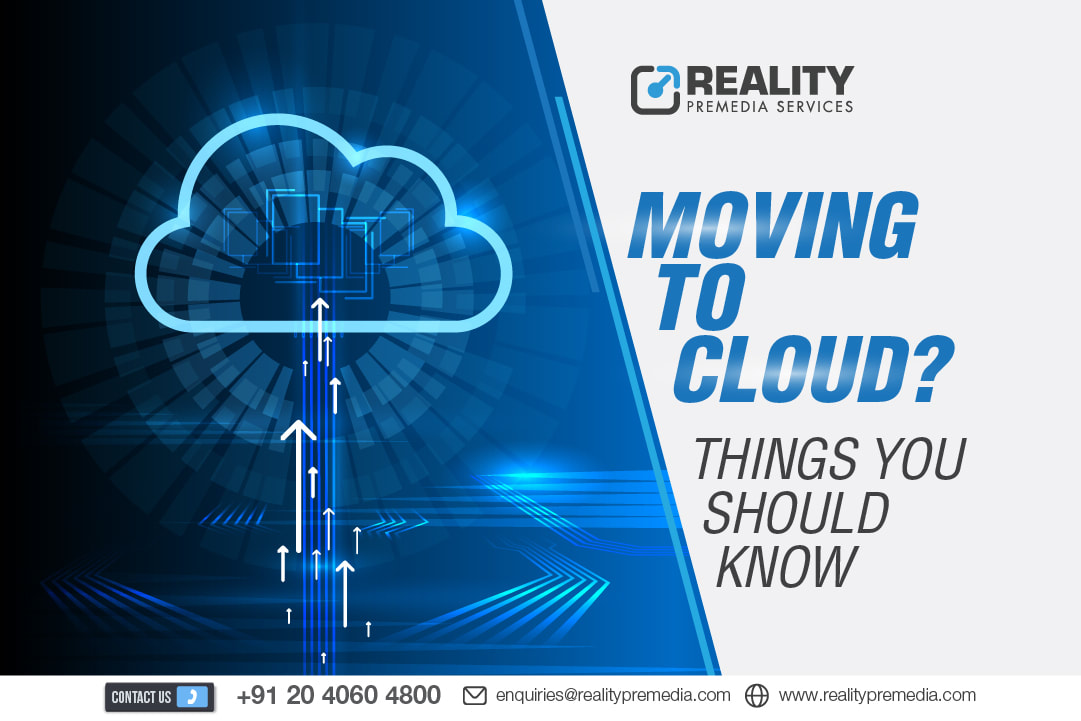|
Back to Blog
Moving to cloud? Things you should know5/31/2022  COVID-19 sparked a surge in digital transformation efforts this year and last. Whether it's cloud computing services firmly establishing itself as a ‘remote work enabler,' or multi-cloud and hybrid clouds assisting businesses with business continuity, the future is bright for cloud computing. Because of the advantages of cloud computing, an increasing number of businesses are adopting a "cloud-first" policy, which means they choose cloud computing solutions when they require new services. According to research, cloud solutions will become more popular across industries. As per IDC, cloud computing service provider will account for more than $1 trillion in commercial IT investment by 2024. Between all this planning and reaping the rewards, there is one final step to consider: cloud migration. Many businesses are hesitant to take this step because of concerns about over-provisioning, skills shortages, adoption issues, and downtime. To help you decide, we’ve listed important things below that you should be aware of before jumping in for cloud migration. Goals Cloud migration generally improves scalability, agility, security, and efficiency while allowing for speedier software development. However, each company may require the cloud for various reasons. For example, a financial institution would require it to boost processing power, scalability, and security. To achieve the best business value from cloud adoption, you must first anticipate your demands. Security How secure is your cloud data? To avoid being on the wrong side of a lawsuit, find a trusted cloud service provider before handing over ownership of your intellectual property. To ensure that the company's data is secure, security problems should be addressed at the outset of any cloud plan. Amazon Web Services, for example, is a trusted cloud service provider that follows best practices to protect users' data on the AWS Cloud. AWS Security Best Practices has more information. Data location What will happen to your data? It's critical to store your data somewhere that isn't contractually locked because retrieving data is incredibly tough. Choose a cloud station that allows you to move around freely, quickly, and with visible progress indicators. Disaster recovery What is your backup strategy and how will your cloud computing service provider help you out of a crisis if your cloud computing system goes down or suffers a disaster? Employees and clients must still be able to access company data to ensure business continuity. Businesses should understand what defines an outage and when financial consequences should apply for any level of downtime. Scalability Everything has an upper limit. A cloud application is scalable, with a demand- based "pay as you go" method, yet even the cloud has limitations. Focus on several "ceilings" such as organization, storage, people, technology, and cost when developing a cloud plan to decide how much and how far your application can scale. It's also critical to check your existing software's compatibility with the cloud. Reliability It's crucial to learn about your vendor's margin of error, power outages, and security concerns. Keeping track of cloud service accessibility and availability can also help you choose the best cloud service provider for your company. Another crucial issue is to provide your personnel with the necessary skills to effectively use the cloud. This will make the transition to the cloud go more smoothly and help you achieve your cloud goals. If you have any concerns, speak with one of our specialists right away. Contact us - enquiries@realitypremedia.com +91-20-4060-4800 +1-551-333-1480
0 Comments
Read More
Your comment will be posted after it is approved.
Leave a Reply. |
Drop us a line
|

 RSS Feed
RSS Feed

